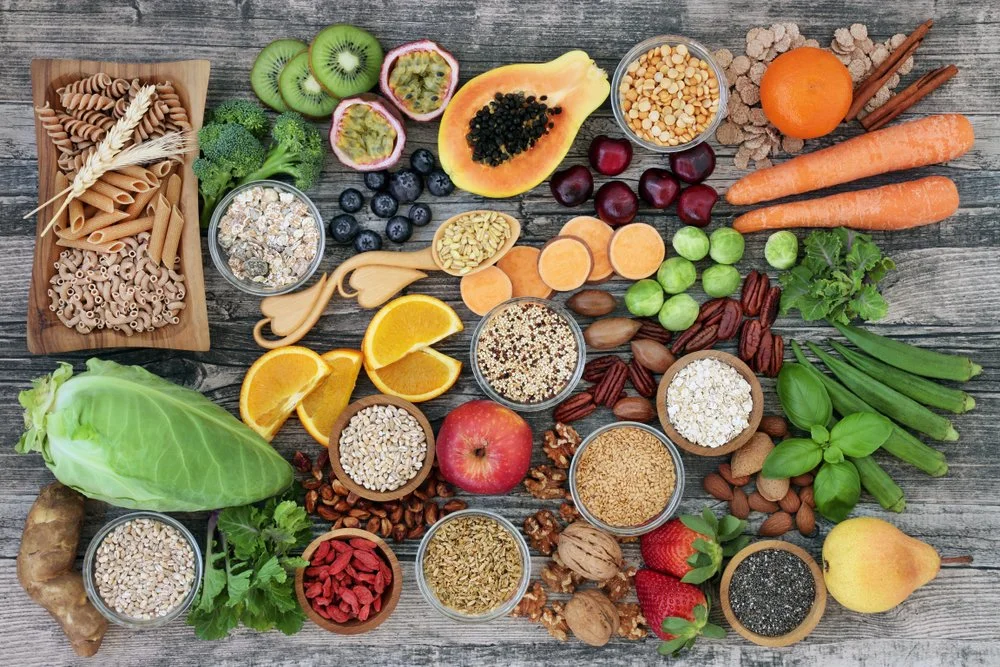The Gut Microbiome in ALS / MND
The 1% Chance explores themes of hope, wellness and discovery in the context of MND / ALS. The author is not a healthcare professional. This article is for informational purposes only and does not construe medical advice. Please consult a healthcare professional about your own healthcare needs.
Transcript:
Hey there, and welcome to The 1% Chance -where we explore themes of hope and wellness in the face of MND, also known as ALS. I’m your host, Graham Dargie. I’ve been living with MND since 2023, and my mission is to find natural ways to stay as well as I can be - with no limits on what that might look like.
Now, the gut microbiome - what is that?! Well, it’s the community of trillions of bacteria that live in our gastrointestinal tract. Our microbiome is acquired through various means, including prenatally, during birth, breastfeeding, from the environment we live in, and our diet. The composition of our microbiome can be altered and affected by our genetics, our environment, our lifestyle and our diet, while antibiotic or non-antibiotic drug use can also affect their makeup. The microbiome also play a key role in the development of the immune system and the central nervous system and imbalance in the microbiome (dysbiosis) has been associated with the onset and progression of neurological disorders.
You’ve probably heard the term gut-brain axis, and understand there’s a connection between the gut and the brain, but the health of our gut microbiome can have a profound effect on our central nervous system, cognition, and emotional state. Neurotransmitters like glutamate and GABA (associated with MND progression), norepinephrine (related to the fight-or-flight response) as well as dopamine and serotonin (related to mood) are all produced by gut bacteria - so it stands to reason that a healthy microbiome is important.
While I was researching the microbiome, I came across a medical paper about an ALS patient in China who was given a course of antibiotics due to a wounded scalp. The antibiotics helped heal the infected wound, but her ALS symptoms progressed rapidly during the treatment. Her doctors then performed a washed microbiome transplant (WMT) to help restore her microbiome after the antibiotics, but they discovered that the WMT had inadvertently caused a partial reversal in the patient’s ALS symptoms.
In a 2024 presentation, Dr Richard Bedlack, a neurologist at Duke University who is studying ALS reversals, highlighted a study which found a difference between the gut microbiomes in fast-progressing and slow-progressing ALS patients. Bedlack notes that these are ‘not different in one simple way’ but goes on to say, ‘we do know if we take the stool samples from a person with either slow or fast progressing ALS and we put it into the genetic mouse model of ALS we can change the progression rate’. According to Bedlack, further research is planned.
While we wait for a wider study to take place, these examples showed me enough to indicate an association between gut health and disease progression. I’m not about to get a WMT, but as there are no downsides to improving my microbiome, gut health has become a target. I want to keep levelling-up my diet by keeping sugar intake as low as possible and avoiding processed foods while focusing on nutrient density and diversity. A diet rich in fiber, polyphenols, and omega-3s can support microbiota diversity and function. Some of the most nutrient-dense foods include salmon, sardines, kale, spinach, seaweed, liver, berries, and eggs.
Eating this way has knock-on effects on my hormones and neurotransmitters, helping my body to function well and keeping my mood balanced. When my mood is balanced, I’m more likely to live with hope and positivity. When I’m feeling positive, it’s easier to exercise, take care with what I eat, and stick to my other wellness routines. This creates more than a feedback loop; it’s an upward spiral for my health and wellbeing.
Thanks for listening - I stand with you.
